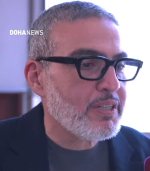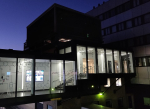
In a remarkable display of community-driven action, two artists in north London have successfully harnessed people power to combat soaring energy bills and address the urgent issue of global
warming. Dan Edelstyn and Hilary Powell, an artist couple, raised £113,000 through crowdfunding efforts, including a three-week rooftop sleep-out, to install solar panels on numerous houses in their street.
Their approach offers a refreshing alternative to relying on a broken political system by directly engaging with their neighbors. Over the course of a year, Edelstyn and Powell persuaded fellow residents to join their innovative project. This initiative holds particular significance for the residents of Waltham Forest, the London borough where the artists reside, as it currently ranks third highest in the capital for fuel poverty. Many of the households in the area live in poorly insulated Victorian-era homes, resulting in higher energy consumption.
Ejaz Hussein, a longtime street resident, expressed his delight with the project, estimating a 70% reduction in his electricity bill. "It's good for the environment, and I can't afford electricity anymore, so it will really help as I'm struggling," Hussein said. By generating electricity from solar panels, these households rely less on the national grid, leading to lower energy bills. Additionally, any excess energy can be sold back to the grid.
Experts in the industry assert that community-based projects tend to be more efficient and cost-effective compared to individual solar installations, as economies of scale come into play.
Octopus Energy, the company responsible for installing the solar panels, has undertaken the project at cost to raise awareness about the necessity of transitioning to renewable energy. While renewable energy is carbon-free, it poses challenges due to its intermittent nature, causing grid instability. Rebecca Dibb-Simkin, Chief Product Officer at Octopus Energy, emphasized that this is a global problem that demands significant changes in how societies adopt renewables. Community initiatives, she noted, are compelling grids to adapt to new energy sources, highlighting the power of collective action.
Last month, Britain's energy regulator, Ofgem, announced a policy review to expedite the connection of low-carbon energy projects to the electricity transmission grid.
Edelstyn and Powell aim to inspire other communities, not only to reduce costs and carbon emissions but also to promote community engagement, which has waned in the United Kingdom in recent years. According to Community Energy England, the growth of community projects slowed to 2.4% in 2022 after experiencing a doubling in size each year from 2014 to 2017.
Their ultimate goal is to ensure that individuals have easy access to the necessary financial resources for retrofitting their homes and decarbonizing their neighborhoods. Edelstyn emphasized the importance of simplicity and straightforwardness in driving community-driven sustainable initiatives. Photo by Philafrenzy, Wikimedia commons.









































